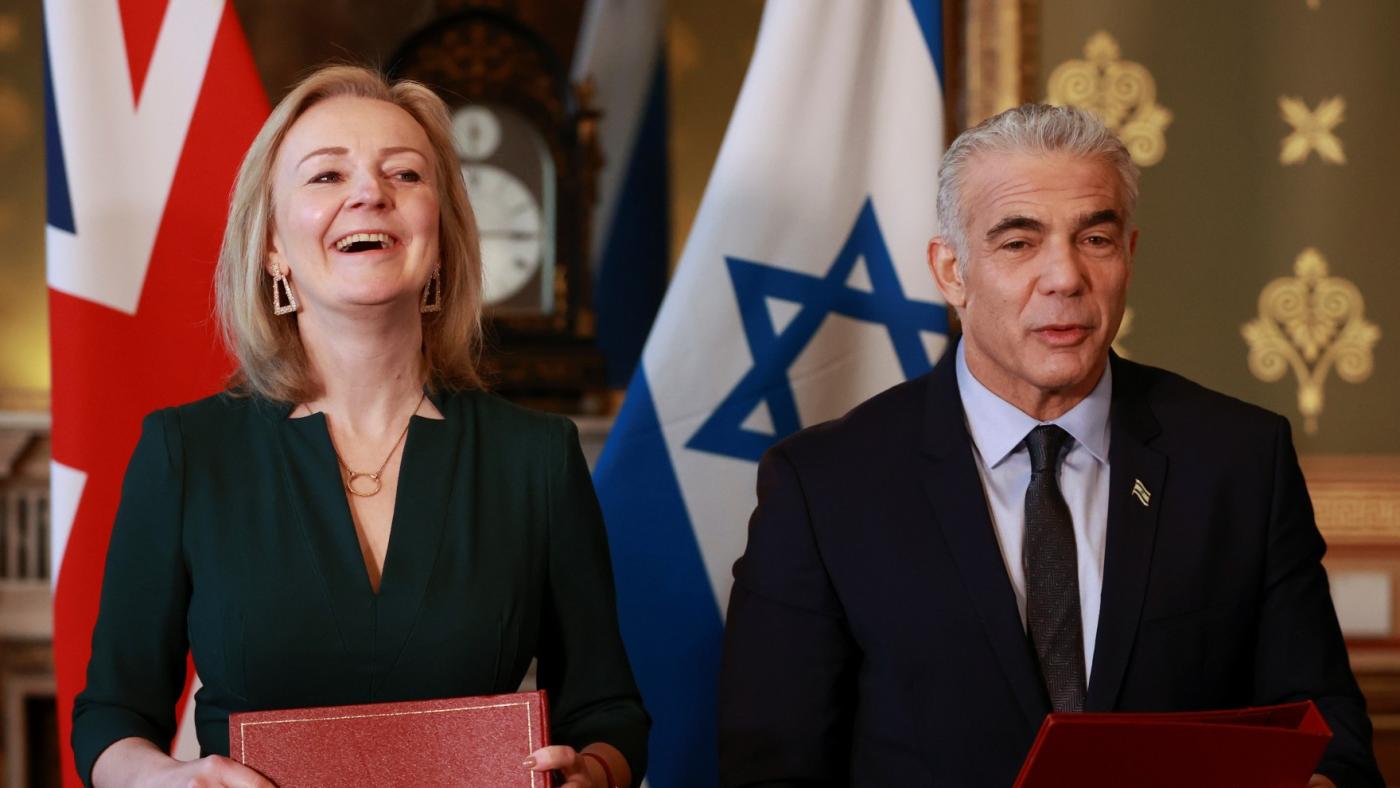In preparation for talks to establish a new Free Trade Agreement (FTA) with Israel, the UK’s Department for International Trade is now reviewing public submissions.
The UK’s Foreign Secretary Liz Truss and Israel’s Foreign Minister Yair Lapid collaborated on an article for the Telegraph in November to celebrate the possibility of turning a “close friendship” into a “even closer partnership” through “a new strategic plan for the next decade, spanning cyber, tech, trade, and defense.”
James Clarke, the UK’s main negotiator for the pact, made a direct plea to Jewish Chronicle readers in London on March 29 to “help shape” negotiations for a new bilateral trade agreement.
The British government’s strategy for negotiating this trade agreement is clear from both of these pieces, which include.
Specifically, the transaction was made without taking into account the larger political and human rights context, or actively consulting any of the populations that stand to be impacted by it, most notably Palestinians, both in Palestine and in the UK.
Given that the present trade between the UK and Israel is worth approximately £5 billion, the government’s pursuit of a stronger trade agreement may not come as a surprise. But strengthening ties with Israel while it continues to oppress the Palestinian people and routinely flouts international law is not only morally and legally dubious, but also shortsighted.
The illegality of Israel’s settlement activity and related transgressions is supported by numerous UN resolutions, legal analyses, and international studies, a position that is at least formally mirrored in UK foreign policy.
The Israeli government continues to fully integrate those settlements, including the production and manufacturing industries, financial services, and many other types of businesses, even as it regularly announces the expansion of settlements throughout the entire region between the Mediterranean Sea and Jordan River.





